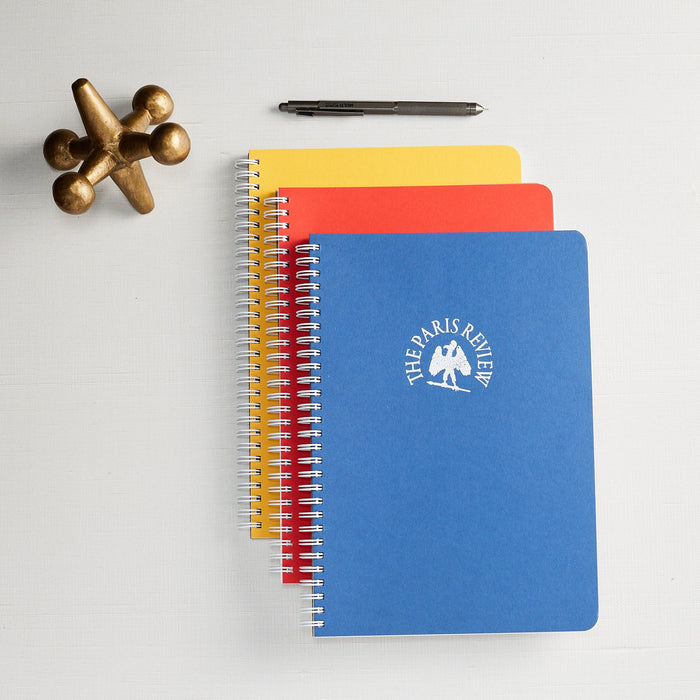In describing the Victorian Era, Oscar Wilde famously said, "Nowadays people know the price of everything and the value of nothing." The notoriously witty Irishman was making a point about how high society Londoners de-valued art and elevated the status of material goods.
The same might be said of today's commercial environment. In a world where you can order a sandwich, reserve an inflatable bounce house for your kid's birthday party, and binge-watch Stranger Things on Netflix all from the comfort of your couch, it's hard to remember that the return on your purchases varies wildly. That bounce house might be a blast for the afternoon, and you might feel great while watching Netflix and eating that sandwich, but what do you come away with once those experiences are over?
By contrast, the returns on reading are significant and lasting. Learning new information and skills, increasing vocabulary, and engaging with the culture-at-large are reading's most obvious benefits. Still, there are other, less tangible rewards, too, including the sense of accomplishment one feels when finishing a long book or the emotional fulfillment you experience when you come to the end of a story you've enjoyed.
Here are five categories of books that you should aim to read over a year to increase knowledge, entertain yourself, and to become a more interesting and engaging individual.
A Classic Novel
Classic novels are remembered for a reason. Books like Jane Eyre, Middlemarch, Brideshead Revisited, The Great Gatsby, The Catcher in the Rye, A Sport and a Pastime, East of Eden, On the Road, The Sound and the Fury, Pride and Prejudice, and To Kill a Mockingbird are revered because they were great stories and because they spurred literary culture to grow and change.
Each of these titles--and so many more--surprised, angered, and in some cases confused readers and critics. They endure today because the changes that they helped make resounded widely, and they're still discussed, studied, and admired because they've helped shape our notions of what good, lasting literature is.
Reading at least one classic novel a year will improve your understanding of history, provide you with some intelligent cocktail party banter, and heighten your knowledge of literary culture.
A Contemporary Novel
Every year, thousands of compelling books are published in English alone, and there's something for everyone's taste. Whether it's a literary horror novel like Benjamin Percy's Red Moon or the latest from young writers like Elanor Catton (The Luminaries), Ted Thompson (The Land of Steady Habits), Stuart Nadler (Wise Men), or Angela Flournoy (The Turner House), there's bound to be something that will grab your attention. Also, each year major books like Julie Otsuka's The Buddha in the Attic and Karen Joy Fowler's We Are All Completely Beside Ourselves win significant awards, bringing them into the limelight and becoming part of the broader literary conversation.
Reading at least one contemporary novel a year will allow you to participate in conversations about the changing shape of literature, and to make recommendations to others about the great new book you found.
A Big, Groundbreaking Business Title
Particularly in the United States and the United Kingdom, business books bring the stories and advice of major business leaders to the public. Whether you work for a major corporation or are a stay-at-home parent, engaging with these titles will provide you with a broader sense of how people work and make money, and how the nature of business is growing and changing. This also means that if you want a clear and accurate view of how the global economy is functioning and growing, business books are a great resource.
Each year, hundreds of major business titles are published, and a few always rise to the top. Recent relevant titles include Ed Catmull and Amy Wallace's Creativity, Inc., Eric Ries's The Lean Startup, and Simon Sinek's Start with Why. There are also classic business titles that are well worth your time, and that are such cultural touchstones that you've probably already heard of them, including Getting Things Done by David Allen, The 7 Habits of Highly Effective People by Steven R. Covey, and Lean In by Cheryl Sandberg, and The Story Factor by Annette Simmons.
Reading at least one business title each year will keep you plugged into the world of commerce and can provide helpful, practical advice for how to manage your money and how to communicate with others--at work and home.
A Political Biography
Particularly in democracies, we look to our leaders for good policy, level-headedness, and signs that, ultimately, they're not so different from the rest of us. Regardless of your political affiliations, it's vital to read major political biographies so that you're more aware of who our leaders are, where they came from, and where our world is headed. It might be more beneficial to read biographies and autobiographies of political figures with whom you disagree than those with whom you agree. That way, you'll have a rounder view of politics and policy, and you'll be able to empathize with those across the aisle truly.
Here are some of the most intriguing political biographies about American politicians and leaders of the past few years: 41: A Portrait of My Father by George W. Bush, My Life by Bill Clinton, Living History by Hilary Rodham Clinton, Dreams from My Father by Barack Obama, The Legacy of Ruth Bader Ginsburg by Scott Dodson, Clarence Thomas's My Grandfather's Son: A Memoir.
Also, there are significant biographies and autobiographies from international leaders and leaders of America's past that are well worth your time, including Angela Merkel: The Authorized Biography by Stefan Kornelius, Tony Blair's A Journey: My Political Life, The Autobiography of Malcolm X by Malcolm X, Long Walk to Freedom by Nelson Mandela, and Mao: The Unknown Story by Jung Chang and Jon Halliday.
Reading a political biography a year will broaden your political knowledge, and inform you about the private lives of our public servants. Also, by reading historical and international biographies, you'll improve your understanding of global politics and historically significant political movements and players.
A Book that Makes Modern Science Accessible
We live in an incredibly complicated world, one in which we've never spent more on research and development. We've sent rovers to Mars, probes into the Earth's crust, and have transplanted lab-grown tissue into the human body. Each year, some of our most brilliant scientific minds write popular books in layman's terms, making otherwise difficult-to-understand information accessible to the public.
There are classic popular science texts like Steven Hawking's A Brief History of Time and Rachel Carson's Silent Spring, as well as plenty of contemporary titles from brilliant scientists, including Michio Kaku's The Future of the Mind, Louann Brizendine's one-two punch of The Female Brain and The Male Brain, Andrew Solomon's Far from the Tree, and Neil DeGrasse Tyson's Death by Black Hole and Other Cosmic Quandaries.
Not only will engaging with popular science texts improve your scientific knowledge, it will provide you with great conversation topics. Also, because most sciences rely on prior research, most popular science titles will provide you with notes and indexes that will prove useful for further reading.
Regardless of why you might choose to read more (or to read more broadly), the results will mostly be positive. Becoming a well-read individual inevitably makes you more interesting, more engaging, and more confident. Plus, reading is one of life's great pleasures. Life is short, so it's best to get started today.




Comments
Leave a comment